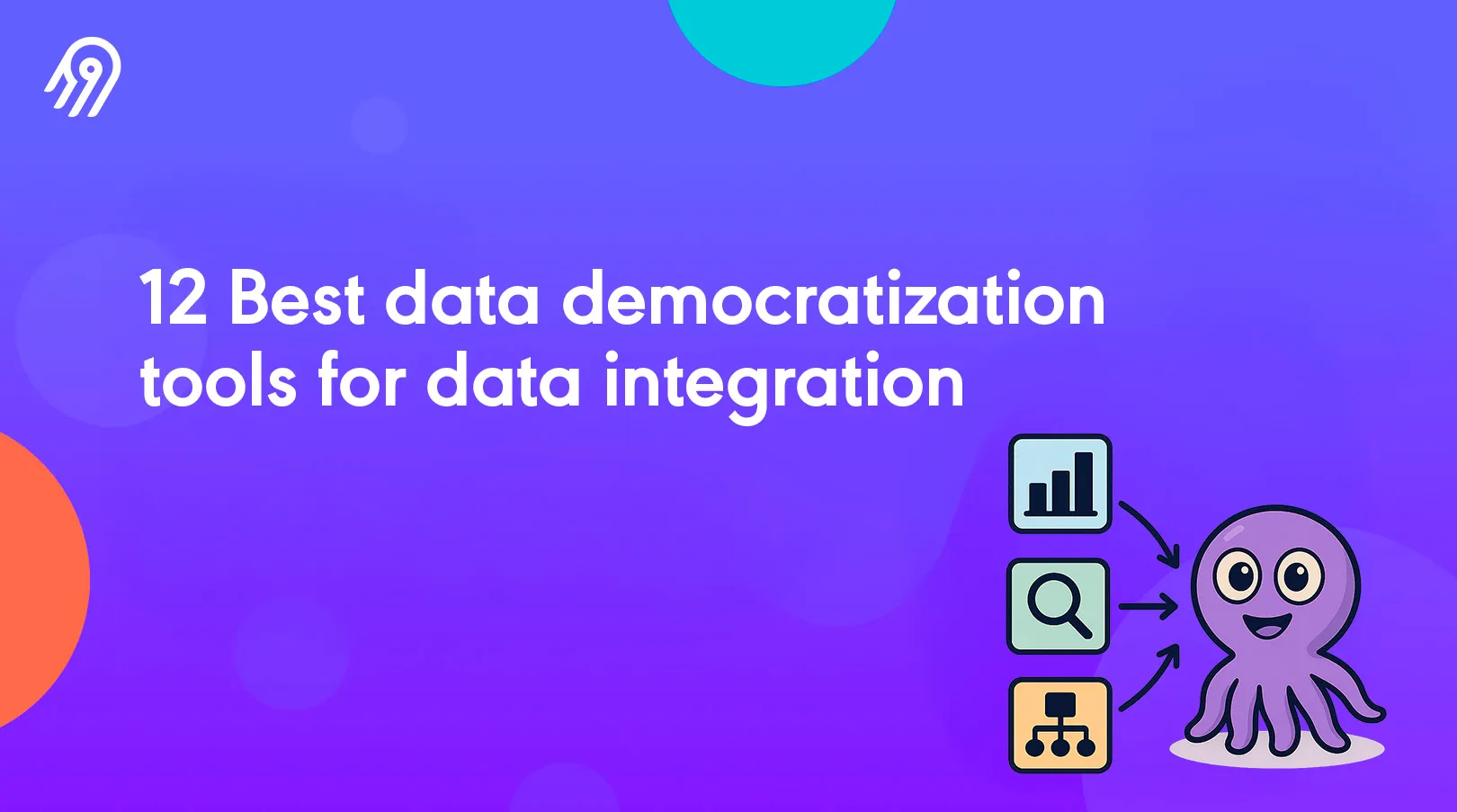12 Best Data Democratization Tools for Data Integration
Summarize this article with:
✨ AI Generated Summary
Data democratization tools enable self-service, governed access to data across organizations, reducing reliance on technical teams and accelerating decision-making. Key benefits include improved collaboration, innovation, and faster insights, while challenges like data quality and governance require robust policies and training. Advanced AI and natural language processing enhance usability by enabling conversational queries, automated insights, and proactive data quality management.
- Top tools for 2025 combine self-service access, metadata visibility, governance, and AI-powered search (e.g., Airbyte, Atlan, Alation, ThoughtSpot).
- Effective democratization requires integration into data pipelines (ELT/ETL) to ensure data freshness, governance, and trust.
- Choosing the right platform involves balancing usability, security (RBAC), metadata management, AI search, and seamless integration.
Traditional data management often creates bottlenecks. Business teams are forced to rely on technical gatekeepers for access, slowing down decision-making and limiting agility.
Data democratization tools solve this challenge by enabling self-service access while still ensuring governance and security. They turn data into an accessible asset that empowers every stakeholder to make informed decisions.
This guide reviews the leading data democratization tools for 2026, highlighting their capabilities, implementation strategies, and the key factors that separate successful initiatives from those that fall short.
What Are Data Democratization Tools?
Data democratization tools are platforms designed to make data accessible, understandable, and usable for everyone across your organization — not just the technical teams. Ensuring data accessibility is a crucial aspect of data democratization, enabling users with varying levels of technical expertise to engage with data more intuitively. These tools reduce dependency on engineers or analysts by empowering business users to explore, analyze data, and act on it themselves, all within a governed framework that maintains data integrity.
These tools combine features like self-service access, role-based permissions, metadata visibility, and AI-powered search to help teams find and use the right data, fast. Whether it's through a data catalog, an embedded semantic layer, or a no-code analytics interface, the goal is the same: open access with built-in guardrails to ensure data security and quality.
If you're tired of backlogs, bottlenecks, or inconsistent reporting, this is where you start. The best data democratization tools give people the power to answer their own questions — without putting data integrity at risk.
Benefits of Data Democratization
The benefits of data democratization are numerous, including improved decision-making, increased collaboration, and enhanced innovation. By providing widespread access to data, organizations can tap into the collective knowledge and insights of their employees, leading to better business outcomes. However, data democratization also poses challenges, such as ensuring data quality and security, managing data complexity, and addressing potential resistance to change.
To overcome these challenges, organizations must implement robust data governance policies, provide ongoing training and support, and foster a culture of data literacy and collaboration. By doing so, they can unlock the full potential of their data assets and drive business success, ensuring that data democratization efforts are aligned with the organization's data governance practices and goals.
Common Data Democratization Challenges
- Data silos or outdated data
- Low data literacy across teams
- Resistance to adopting new tools
- Complexity in maintaining governance
How Can Advanced AI and Natural Language Processing Transform Data Democratization?
The integration of artificial intelligence and natural language processing capabilities represents a revolutionary advancement in data democratization, fundamentally transforming how non-technical users interact with complex analytical systems and derive meaningful insights from organizational data assets.
Conversational Analytics and Natural Language Querying
Natural language querying eliminates traditional technical barriers by enabling users to interact with databases and analytical systems using everyday conversational language rather than specialized query syntax or complex interface navigation. Modern natural language processing systems incorporate sophisticated understanding of business context, analytical intent, and domain-specific terminology that goes far beyond simple keyword matching to provide accurate, contextually relevant responses to user inquiries.
Advanced conversational analytics platforms maintain context across multiple interactions, enabling users to conduct complex analytical investigations through natural dialogue patterns. These systems can handle follow-up questions that reference previous results, build upon earlier analyses, and guide users through sophisticated analytical workflows using intuitive conversation rather than technical interface manipulation.
The democratization impact becomes particularly pronounced when considering that conversational interfaces can proactively suggest relevant analyses, recommend follow-up questions, and provide contextual explanations that help users understand both analytical results and their business implications. This guidance capability proves essential for users without extensive analytical backgrounds who need support in formulating effective questions and interpreting complex findings.
Automated Insight Generation and Augmented Analytics
Artificial intelligence-powered insight generation capabilities automatically identify interesting patterns, anomalies, and trends in organizational data without requiring users to know specific questions to ask. These systems leverage machine learning algorithms to continuously analyze datasets and surface findings that would be relevant to specific user roles or business contexts, transforming passive data access into proactive intelligence delivery.
Augmented analytics extends beyond pattern detection to include automated statistical analysis, correlation identification, and predictive modeling that enables business users to benefit from advanced analytical techniques without understanding underlying mathematical concepts. These capabilities automatically select appropriate analytical methods based on data characteristics and user context, then present results through intuitive visualizations with plain-language explanations of findings and business implications.
The democratization potential becomes evident when considering that automated insight generation enables organizations to scale analytical capabilities across large user populations without requiring proportional increases in technical expertise or analytical resources. Business users who previously depended on data analysts for complex analysis can independently discover actionable insights while automated systems handle the technical complexity of advanced analytical methods.
AI-Driven Data Discovery and Quality Management
Machine learning algorithms revolutionize data discovery by automatically identifying relevant datasets, understanding content patterns, and creating comprehensive metadata catalogs that make organizational data assets discoverable to non-technical users. These systems can classify data based on content analysis, usage patterns, and business context while providing intelligent recommendations that help users find datasets they might not have known existed or understood to be relevant to their analytical needs.
Automated data quality management becomes essential for democratization initiatives because it ensures that self-service users receive reliable, accurate information without requiring them to validate data quality independently. Advanced systems continuously monitor data streams to detect quality issues, inconsistencies, and potential problems while implementing corrective actions automatically or providing clear guidance about data limitations and appropriate usage contexts.
The integration of artificial intelligence into data quality processes enables predictive approaches that anticipate potential issues based on historical patterns, system changes, and environmental factors. This proactive quality management maintains user confidence in self-service capabilities while reducing the support burden associated with quality-related problems that could otherwise undermine democratization effectiveness.
Top 12 Data Democratization Tools for 2026
Here's a breakdown of the best tools available in 2026, including expanded pointers on each.
1. Airbyte
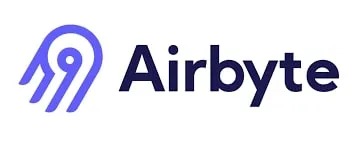
Airbyte is a data integration platform with 600+ pre-built connectors, designed to sync data seamlessly from source to destination with a focus on scalability and usability.
Key Features
- ELT-native platform with connector builder
- Role-Based Access Control (RBAC) in enterprise tier
- AI-assisted connection health monitor
- Open-source with cloud-managed option
2. Atlan

Atlan is a collaborative data workspace that helps teams discover, understand, and govern their data through a powerful metadata layer.
Key Features
- Auto lineage tracking & metadata discovery
- Slack and BI-tool integrations
- Built-in workflows for access and governance
- Contextual collaboration
3. Alation
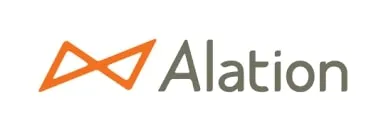
Alation offers an AI-powered data catalog platform that enables governance, discovery, and collaboration at scale.
Key Features
- Active data governance
- Glossary and data stewardship
- Usage analytics and tracking
- AI-powered data search
4. Looker

Looker provides governed BI and analytics with a semantic modeling layer that standardizes data across teams.
Key Features
- Data modeling with LookML
- Governed dashboards and reporting
- Embedded analytics and APIs
- Deep integration with Google Cloud
5. Collibra

Collibra is a comprehensive data intelligence platform built for data governance, privacy, and quality management across the enterprise.
Key Features
- Business glossary & data catalog
- Workflow automation for governance
- Supports structured/unstructured data
- Lineage and quality enforcement
6. ThoughtSpot

ThoughtSpot brings natural-language search to analytics, enabling any user to query data with conversational ease.
Key Features
- Search-driven analytics
- AI-generated insights
- Live queries on cloud data platforms
- Built-in governance controls
7. Microsoft Power BI
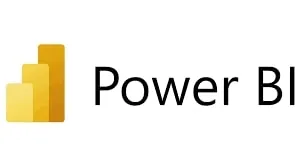
Power BI is Microsoft's flagship BI tool known for its visual reporting and strong ecosystem integration with Office 365.
Key Features
- Easy dashboard creation
- Native Azure integrations
- Governance with row-level security
- Power Query for no-code data shaping
8. Tableau
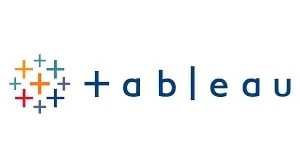
Tableau specializes in visual analytics and business storytelling, enabling users to explore and present data interactively.
Key Features
- Interactive dashboards & visualizations
- Tableau Catalog for metadata visibility
- Broad data-source support
- Optional governance add-ons
9. Data.world

Data.world is a cloud-native knowledge-graph platform built for data discovery, collaboration, and documentation.
Key Features
- Graph-based metadata management
- Integrated lineage & documentation
- Team collaboration and validation
- SOC 2 and GDPR compliance
10. Keboola

Keboola is a low-code data-operations platform that combines data integration, transformation, and governance in one place.
Key Features
- Full-stack ELT & orchestration
- Role-based access & audit logs
- Version control and sharing
- Flexible component-based architecture
11. Dremio

Dremio is a high-performance query engine that lets users run SQL queries directly on cloud data lakes without moving data.
Key Features
- Semantic layer & self-service queries
- Supports lakehouse architecture
- Fast query engine (Apache Arrow, Gandiva)
- Role-aware access controls
12. Secoda

Secoda is a modern metadata-management and discovery tool that simplifies onboarding, search, and data trust.
Key Features
- AI-assisted documentation
- Slack notifications for discovery
- Lightweight lineage & audit tools
- Easy deployment for small teams
Why Does Data Democratization Need to Be Built into Your Data Integration Stack?
Giving people access to data isn't enough if that data is incomplete, outdated, or hard to find. That's why data democratization tools work best when they're tightly connected to your integration stack — not layered on top after the fact.
Performing a data audit to assess the current data situation within your organization is crucial. Understanding and navigating the current data landscape is a crucial first step in the process of data democratization. This includes identifying where data is stored, who has access, the tools used for data management, and evaluating the efficiency of current systems while also addressing employee data literacy and compliance protocols.
When democratization is baked into the data flow, you reduce the lag between ingestion and insight. Teams get access to fresher data, and IT doesn't have to maintain separate systems or handle endless ad-hoc requests. Everyone works from the same source of truth.
More importantly, you protect trust. Embedding democratization into your ETL or ELT pipelines ensures that data governance, quality checks, and permissions carry through to the point of access. That means less confusion, fewer duplicates, and better decisions at every level of the org.
If you want to scale access without losing control, integration is where it starts.
How Should You Choose the Right Data Democratization Tools for Your Organization?
Not every data platform is built for democratization. The right solution balances usability, flexibility, and governance.
Look for tools that offer:
- Role-Based Access Controls (RBAC): Limit exposure to sensitive data.
- Integrated Metadata & Lineage: Understand data context and flow.
- Search & Discovery Features: Quickly locate datasets or metrics.
- AI/Natural-Language Search: Reduce barriers for non-technical users.
- Governance Capabilities: Support for compliance (GDPR, HIPAA, SOC 2).
- Seamless Integration: Compatibility with tools like Airbyte Cloud or modern ELT stacks.
Final Thoughts: Build Access Without Losing Control
Data democratization only works if it scales with security and usability. ELT platforms like Airbyte Cloud make this easy by embedding governance, access, and freshness right into your data pipelines.
If your teams are blocked by tickets, or if your analysts are burned out answering the same questions repeatedly — it's time to modernize. Democratize data with the right tools in 2025, and you'll unlock faster decisions, greater innovation, and a culture where everyone trusts the data they use.
Frequently Asked Questions
What is data democratization?
Data democratization is the process of making data accessible to everyone within an organization, regardless of their technical skill level. It ensures that business users can access, explore, and use data without relying heavily on engineering teams.
Why is data democratization important in 2025?
In 2025, the pace of decision-making is faster than ever. Data democratization ensures that employees at all levels can make informed decisions quickly using real-time, governed data.
How does Airbyte Cloud support data democratization?
Airbyte Cloud enables democratization by integrating governed data access into ELT pipelines. It offers role-based access control, 600+ connectors, and a no-code interface to enable business users to work with data safely and easily.
What's the difference between a BI tool and a data democratization platform?
While BI tools are focused on data visualization and reporting, data democratization platforms prioritize governed, self-service access to raw or transformed data — often including metadata management, discovery, and integration with ELT stacks.
How do I maintain data governance while democratizing access?
Choose tools with built-in RBAC, data lineage, audit trails, and compliance support (GDPR, HIPAA, SOC 2). Embedding governance into the data pipeline, like with Airbyte Cloud, ensures democratization doesn't compromise data integrity.

.webp)
